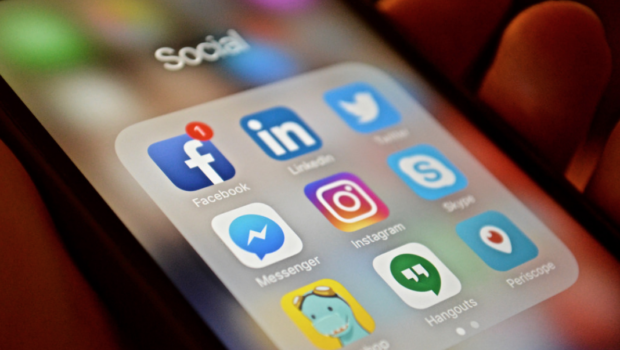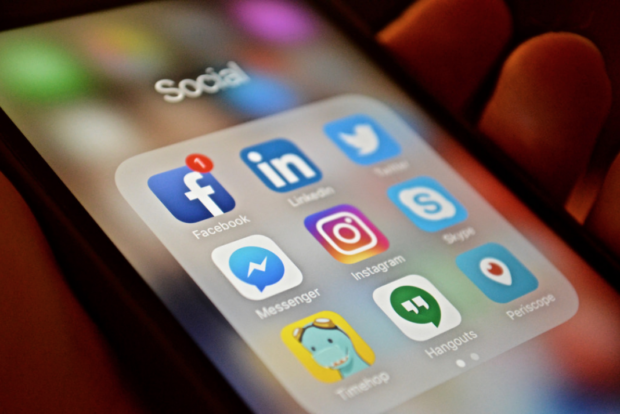

I deleted social media and here’s how the world changed
EntertainmentHealthLifestyleOpinion Mar 28, 2019 Sierra Guido

By: Sierra Guido
Opinion, for Skedline
It’s been two weeks since I bit the bullet and clicked the tiny red ‘X’ on each social media app that my phone became a palace for.
Instagram and Snapchat, gone.
If I told you it was the worst decision I’ve ever made, I’d be lying.
Of course it was scary. What was I about to lose? I’ve been using social media as my digital photo albums, my diary, my newspaper. As if it was a part of my livelihood as a millennial, it became part of who I was. Posting an Instagram photo and watching hundreds of likes pile up on a notification screen for hours, but all for what?
What started out as an innocent download years ago to connect with friends and family quickly morphed into an obnoxious obsession that I knew had to change. It was time to take a break, to be in the moment more, to appreciate more.
In attempt to get my social media free life back, I did it, I deleted it all and the way my world shook was shocking.
Sleep
Did you know that scrolling through social media before bed can cause sleep disturbance? Neither did I.
Researchers found a link between disrupted sleep and the blazing blue light that shines off our phone screens directly into our eyes. The brightness of the blue light can actually modify the production of melatonin, our sleepy hormone which essentially will cause the mind and body to be in for a very restless sleep.
Communication
We’ve all been stuck in conversations with someone who has their face buried in their phones and I can almost bet that on occasion, we’ve been those obnoxious people who listen, but aren’t really listening.
In a small study, researchers paired 34 groups of strangers with the task of having a 10-minute conversation about a recent personal event. Each pair sat in private segregation, half with a mobile phone on the table and half without.
Can you guess what happened? The pairs with a phone just in their presence, had less meaningful conversations, felt less comfortable and were not as positive in the recollection of the conversation then opposing groups who were only given a note pad.
I stopped comparing myself to others
Whether or not we want to admit it, while were scrolling through mile long streams of social media status updates and photos, we’re always comparing ourselves and our lives to what we see on the internet. We see photos with filters, clever angles, perfect lighting and Photoshop that cause the posted snapshot to look disgracefully unlike the original photo, potentially causing an increase in self-esteem and for some people, the feeling of being inadequate.
In a 2016 Penn State University study, researchers discovered that the viewing of other people’s selfies lowered their personal self-esteem because users were viewing photos of others who appeared to be their happiest. By seeing posts about #relationshipgoals or #traveldiaries, we subconsciously tell ourselves we aren’t doing our best when in reality, our lives are just fine. Then again, perhaps it takes getting of social media to realize how great our lives really are.
Appreciate each moment
I didn’t realize how much time I was wasting pulling out my phone every time a waiter brought over a cocktail or I liked my outfit. If I was at a concert or sporting event, I’d be phone in hand watching a live performance through my screen, uploading to snapchat stories rather than watching what was right in front of me. It got me thinking about how much time I really do dedicate to digital platforms.
Almost 40% of the population uses social media, spending an average of two hours per day sharing photos, liking statuses, tweeting about their latest experiences and updating all platforms, which breaks down to nearly half a million tweets and snapshots shared each minute. Crazy, right? When it’s laid out like that, we have to wonder if our generation is withering away behind a screen.
Social media doesn’t define me
My biggest fear was that by deleting my personal social media, I’d drift away and be isolated in my own world, segregated from my friends and family. To my surprise, it’s the exact opposite.
A published study in the American Journal of Preventive Medicine surveyed 7,000 10-32 year olds and discovered that people who spend more time on social media are twice as likely to experience social isolation, which essentially can lead to lack of social belonging and engagement.
I realized that on social media I was subjected to information about people I didn’t know, or wasn’t close to. I didn’t need to know that my brother’s grade school friend moved to Europe. Without these apps, the information I began to receive became filtered and tailored around the people who I love and who matter most to me.
I still talk to my best friends daily; I have healthy relationships with important people and I enjoy my life. Of course, I’m not saying that I’ll never go back, but for now I’ll stick to life without it.
